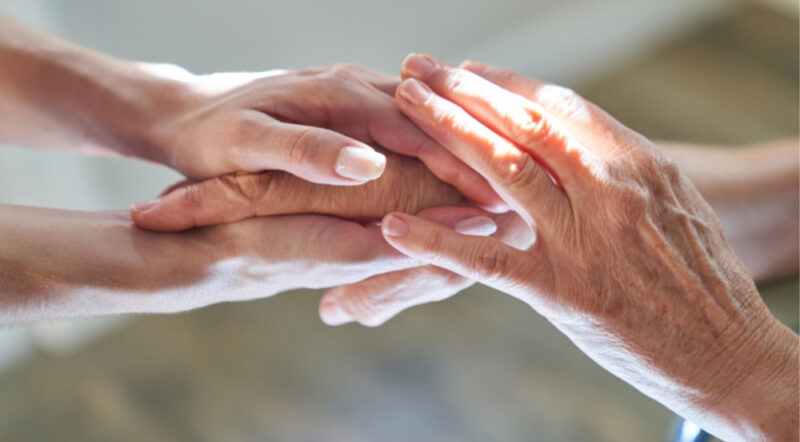![]()

Caregiving is a tough job, whether it be taking a relative to a doctor’s office, supporting an ill, aging, or disabled family member, or the overall care of a loved one. During November, the Department of Health and Human Services (DHHS) recognizes caregivers of every kind and celebrates their dedication to their vital roles in our community.
“Caregiving requires physical, emotional, and financial sacrifices to be made by caregivers who provide care to family members with chronic illnesses, disabilities, or age-related conditions,’ said Tony Green, Director of the Division of Developmental Disabilities. “Caregivers need a chance to recharge and obtain emotional support, recognition, and understanding from others of the role they play within the family. I encourage anyone seeking mental health and emotional support, please remember that you are not alone and support and help are available. Call, text, or chat 988, the Suicide and Crisis Lifeline, which is available 24/7 and is a free service available to any Nebraskan.”
Nationally, over 60% of caregivers work outside of the home. In 2022, over 59% of working caregivers surveyed in Nebraska are the primary caregivers of a loved one. Some caregivers may feel overwhelmed at times because of their “double duty”. If needed, caregivers are encouraged to take some time away from their jobs. Employees covered under the federal Family and Medical Leave Act may be able to take up to 12 weeks of unpaid leave a year to care for relatives.
Caregivers of adults typically provide care for four to five years on average with an increasing proportion reporting they have been providing care for five years or longer. Caregivers leave their jobs for different reasons, but most often it is because of the stress of caring for a loved one.
The signs of caregiver stress can be:
- Feeling overwhelmed or constantly worried, often feeling tired, or feeling sad
- Getting too much or not enough sleep, or gaining or losing weight
- Becoming easily irritated or angry and having a lack of interest in activities that used to be fun
- Having frequent headaches, bodily pain, or other physical problems
- Misusing alcohol or drugs, including prescription medications
Home care is the preferred method of health care delivery among the disabled, aging individuals, and chronically ill. Most communities have some type of respite care available, such as in-home respite where aides come into the home for a period of time; adult care centers/programs and short-term respite care is available as well in some assisted living communities. If you are a caregiver, take advantage of local resources for caregivers by checking out the Eldercare Locator or contacting the local Area Agency on Aging (AAA) to learn about services within the community. Also, refer to the Nebraska Resource and Referral System that provides local services and providers which can specifically generate a list based on the area the recipient resides and the service type needed.
Some tools such as apps for seniors can be downloaded onto a smartphone, while other tools transform an entire house into a secure network to help protect seniors or others from danger. Easing the burden for caregivers will improve the overall quality of care while allowing them much-needed respite from what normally requires full attention. For more information, visit www.respite.ne.gov to find additional resources, or contact your local respite coordinator by calling 1-866-RESPITE.
Need to talk or get immediate help in a crisis? Help is available. If you or a loved one need assistance, please reach out to:
- The Suicide and Crisis Lifeline; call, text, or chat 988.
- Nebraska Family Helpline – Any question, any time. (888) 866-8660.
- Rural Response Hotline, (800) 464-0258.
- Your faith-based leader, healthcare professional, or student health center on campus.
